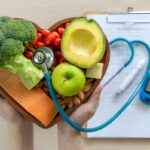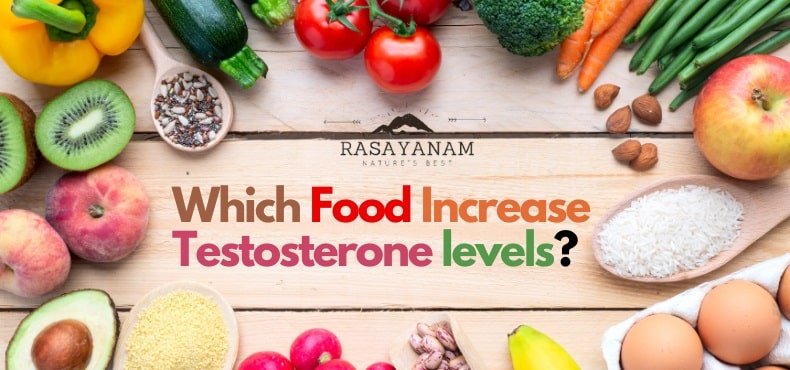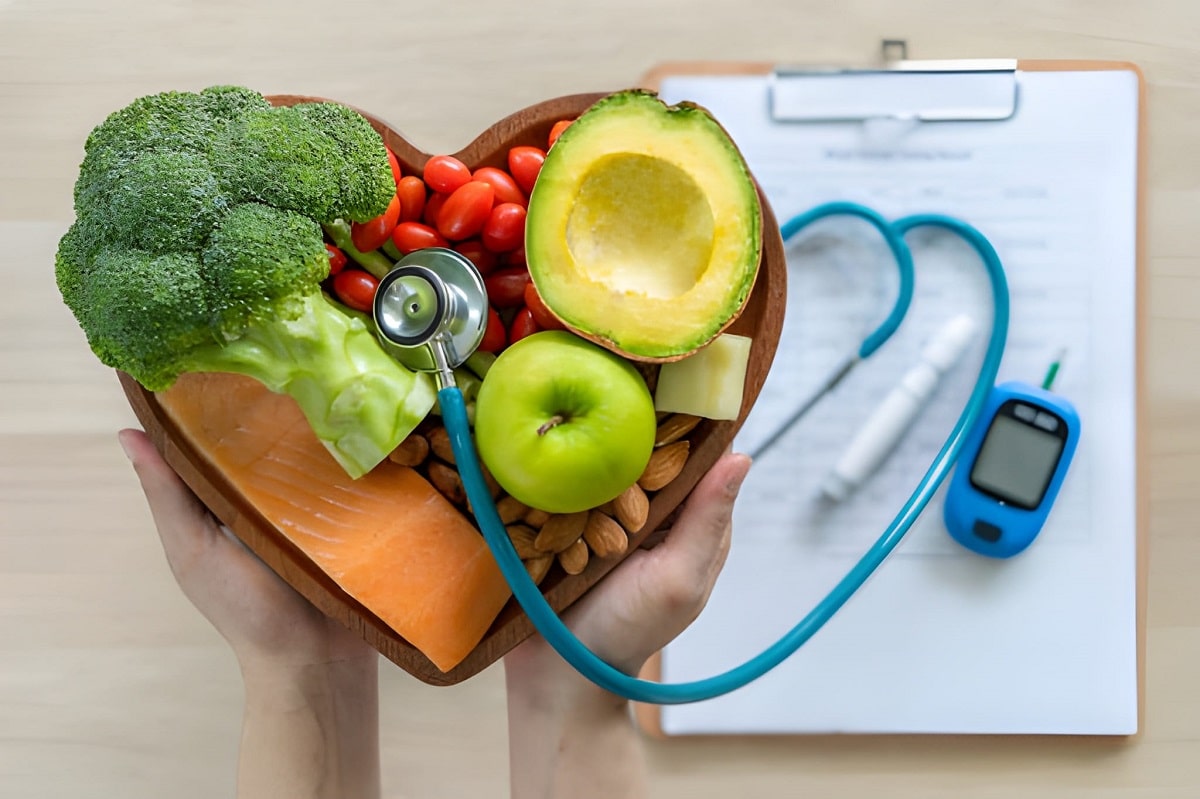Testosterone is a hormone in men and women that plays a crucial role in traits like muscle growth, bone density, and Sex drive. Although testosterone production varies between men and women, men typically produce much higher levels of testosterone. In contrast, women make smaller amounts in the ovaries and adrenal glands. It is important to have healthy testosterone levels in your body as they are vital to your overall well-being. But in present times, some Researches show that there has been a decrease in Testosterone levels among individuals. There could be many reasons for this, but the primary reason is lifestyle. Everything affects your testosterone levels, from continuously being under a lot of stress to making the wrong choices when eating.
Yes, wrong eating habits and food items do affect natural testosterone. Therefore, one must work towards Increasing Testosterone levels, as maintaining healthy Testosterone levels is crucial.
Now, let’s look into some details.
How food impact Testosterone levels?
Poor eating habits can negatively impact testosterone levels by promoting weight gain, particularly around the abdomen, which can lead to increased estrogen production and decreased testosterone. Diets rich in sugar, processed foods, and bad fats can also cause hormone imbalances and reduce testosterone production. Additionally, deficiencies in essential nutrients like zinc, vitamin D, and omega-3 fatty acids, commonly found in unhealthy diets, can further lower testosterone levels.
What foods increase Testosterone naturally?
Lean Proteins: Food items like chicken, turkey, lean beef, and fish contain essential amino acids that are good for testosterone production.
Healthy Fats: Eat food items rich in healthy fats, such as avocados, nuts, seeds, and olive oil, to support hormone synthesis.
Cruciferous Vegetables: Eat vegetables like broccoli, cauliflower, and Brussels sprouts, which contain compounds that can help regulate estrogen levels and promote testosterone production.
Zinc-rich foods: Consume zinc-rich foods like oysters, beef, shellfish, pumpkin seeds, and lentils, as zinc is essential for testosterone production naturally.
Vitamin D Sources: Get enough vitamin D from foods like fatty fish (salmon, mackerel), egg yolks, and fortified foods to support testosterone levels.
Magnesium-rich foods: Include magnesium sources like spinach, almonds, cashews, and whole grains, which play a role in testosterone production.
Omega-3 Fatty Acids Foods: Flaxseeds, chia seeds, walnuts, and fatty fish (sardines, salmon) are good sources of omega-3 fatty acids, which can boost testosterone levels.

Foods that impact your Testosterone levels negatively
Processed Foods: Foods high in processed sugars, refined grains, and unhealthy fats can make you obese and insulin-resistant, which can negatively impact testosterone levels.
Trans Fats: Trans fats, found in partially hydrogenated oils often used in fried and processed foods, can potentially lower testosterone levels and reduce fertility.
Mint: Some studies suggest that certain types of mint, such as spearmint and peppermint, may have anti-androgenic effects, meaning they could potentially lower testosterone levels when consumed in large quantities.
Flaxseeds: Flaxseeds contain lignans, which are plant compounds with estrogenic effects. Consuming large amounts of flaxseeds may interfere with testosterone levels.
High-Dose Calcium Supplements: Some research suggests that excessive calcium intake, particularly from supplements, may interfere with testosterone production.
Food supplements that naturally help increase testosterone
Tribulus Terrestris—This naturally occurring herb has been used in traditional medicine to enhance libido and improve testosterone levels.
Ashwagandha: Ashwagandha is an adaptogenic herb that may help reduce stress and improve testosterone levels in men, according to some research. You can try Rasayanam Ashwagandha Ksm-66 for the best results.
Rasayanam Testoboost– Rasayanam Testoboost is a natural food supplement that contains a blend of Shilajit, ashwagandha and safed musli that can help you boost your testosterone levels naturally.
Takeaways
In conclusion, there are a number of foods and dietary supplements that may naturally increase testosterone levels. Important minerals present in foods like fatty fish, nuts, seeds, and whole grains—such as zinc, magnesium, and vitamin D—significantly impact testosterone production. Furthermore, some studies have indicated that herbs and supplements, such as ashwagandha, Tribulus Terrestris, fenugreek, and D-aspartic acid, may effectively increase testosterone levels.
But before making big dietary changes or beginning a new supplement regimen, it’s crucial to approach supplementation carefully and speak with a healthcare provider, particularly for people with underlying medical conditions or on medication. In the end, maintaining general health and raising testosterone levels requires a balanced diet full of foods high in nutrients, as well as consistent exercise, enough sleep, and stress reduction.
FAQs
Are there any risks or side effects associated with increasing testosterone levels through diet?
Ans. While increasing testosterone levels through diet and lifestyle changes is generally safe, excessive consumption of certain nutrients or supplements may lead to adverse effects.
Can exercise help increase testosterone levels?
Ans. Yes, regular physical activity, especially resistance training and high-intensity interval training (HIIT), has been shown to increase testosterone levels.
Do dietary supplements effectively increase testosterone levels.
Ans. Some dietary supplements, such as Vitamin D, zinc, and certain herbs like Tribulus Terrestris and fenugreek, have shown the potential to support testosterone levels.












